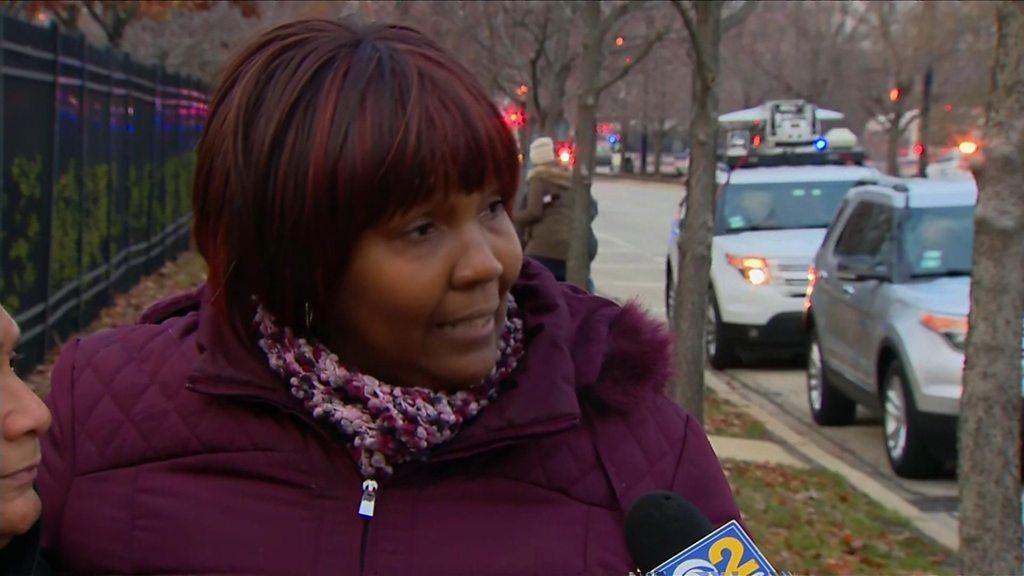Chicago lift fall: Six survive 875 North Michigan Avenue drama
- Published
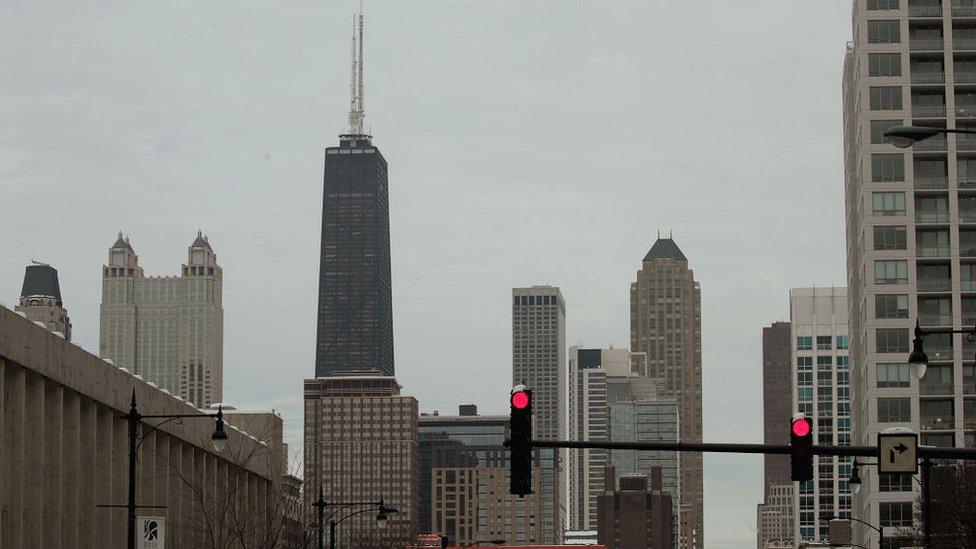
The building (pictured left of centre with two large antenna masts) is the city's fourth tallest
People trapped in a falling lift in the US city of Chicago thought they were going to die as they plummeted 84 floors to the ground.
Six people, including a pregnant woman, fell from the 95th to the 11th floor in a skyscraper formerly known as the John Hancock Center early on Friday morning.
They then texted friends who called the emergency services and they were freed after a three-hour ordeal.
Fire officials reportedly said that a snapped "hoist rope" caused the fall.
Cables still attached to the cabin prevented it from hitting the ground.
The group had left a bar on the 95th floor to go down to the lobby.
Jaime Montemayor, 50, who was in the lift with his wife, said he initially felt it going down normally - and then falling.
There was a sudden "clack clack clack" noise and dust began seeping into the cabin.
Those aboard screamed, prayed and cried, reports said.
"I believed we were going to die," Mr Montemayor, who was visiting from Mexico, said.
You may also be interested in:
Firefighters arrived to rescue those trapped by making an opening in a concrete wall.
"We couldn't do an elevator-to-elevator rescue. We had to breach a wall on the 11th floor of the parking garage in order to open up the elevator doors," Chicago Fire Department battalion chief Patrick Maloney told US TV.
The incident remained under investigation, a city official told the Chicago Tribune newspaper.
The lift had passed its most recent inspection in July, reports say.
The building is the city's fourth-tallest and was renamed earlier this year as 875 North Michigan Avenue.
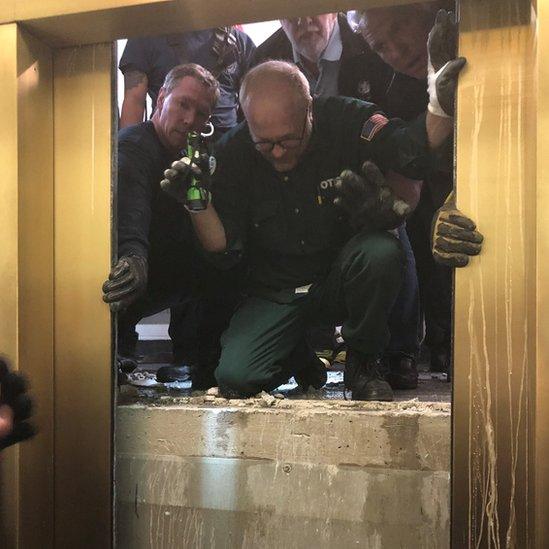
Rescuers had to break through a wall from a car park to reach the trapped

- Published20 November 2018
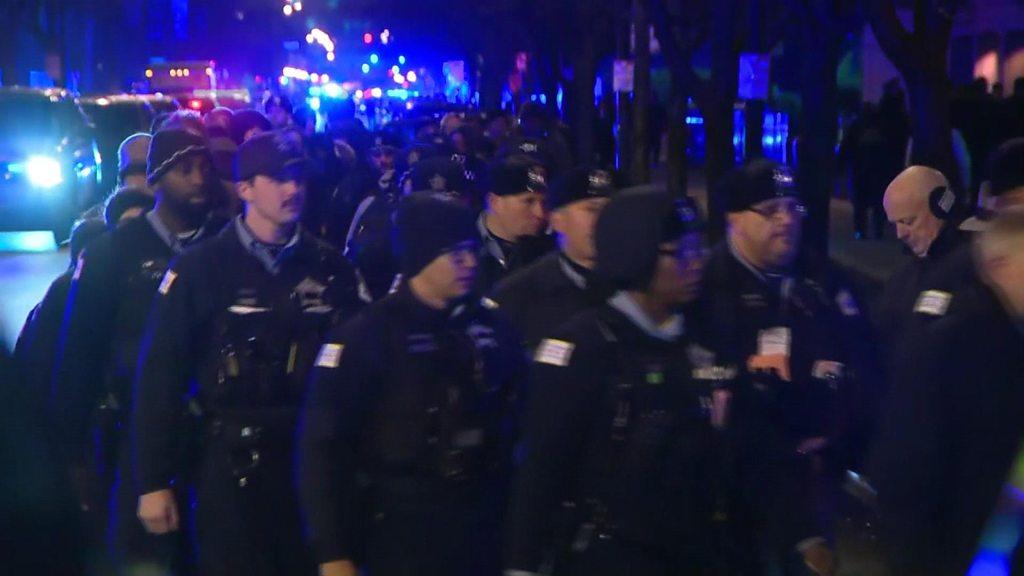
- Published20 November 2018
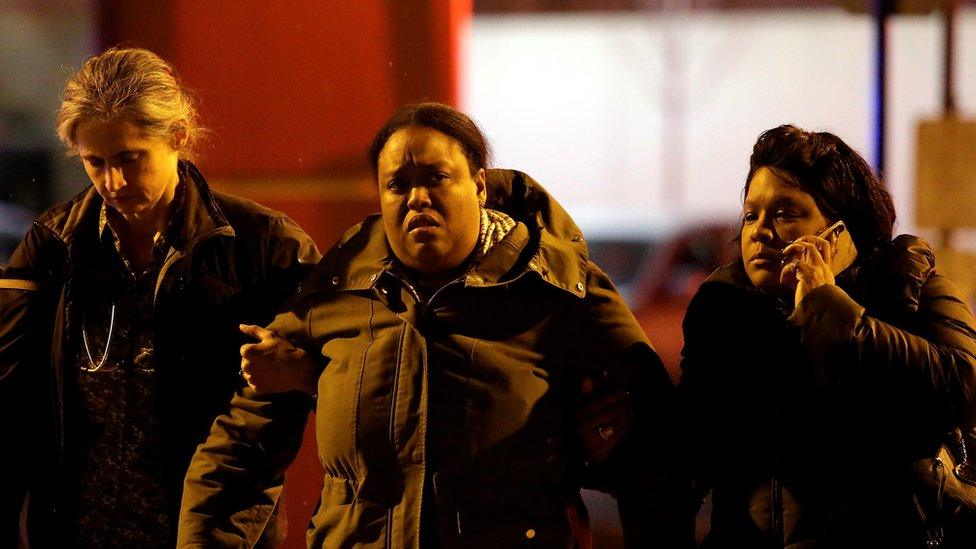
- Published19 November 2018
